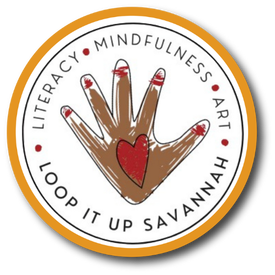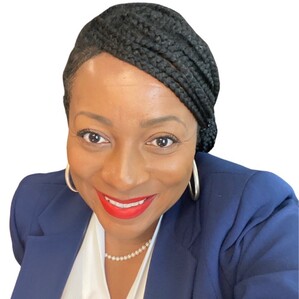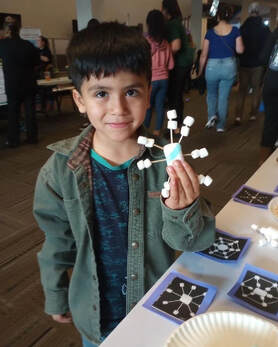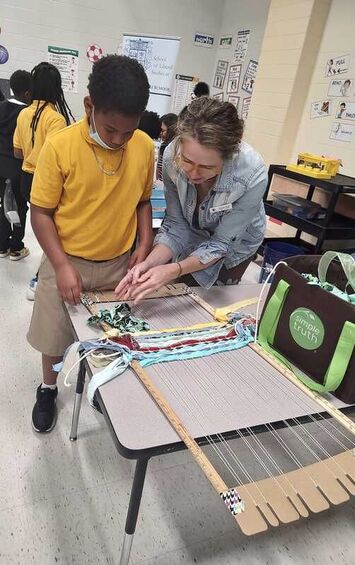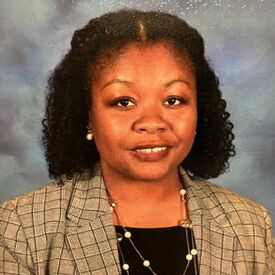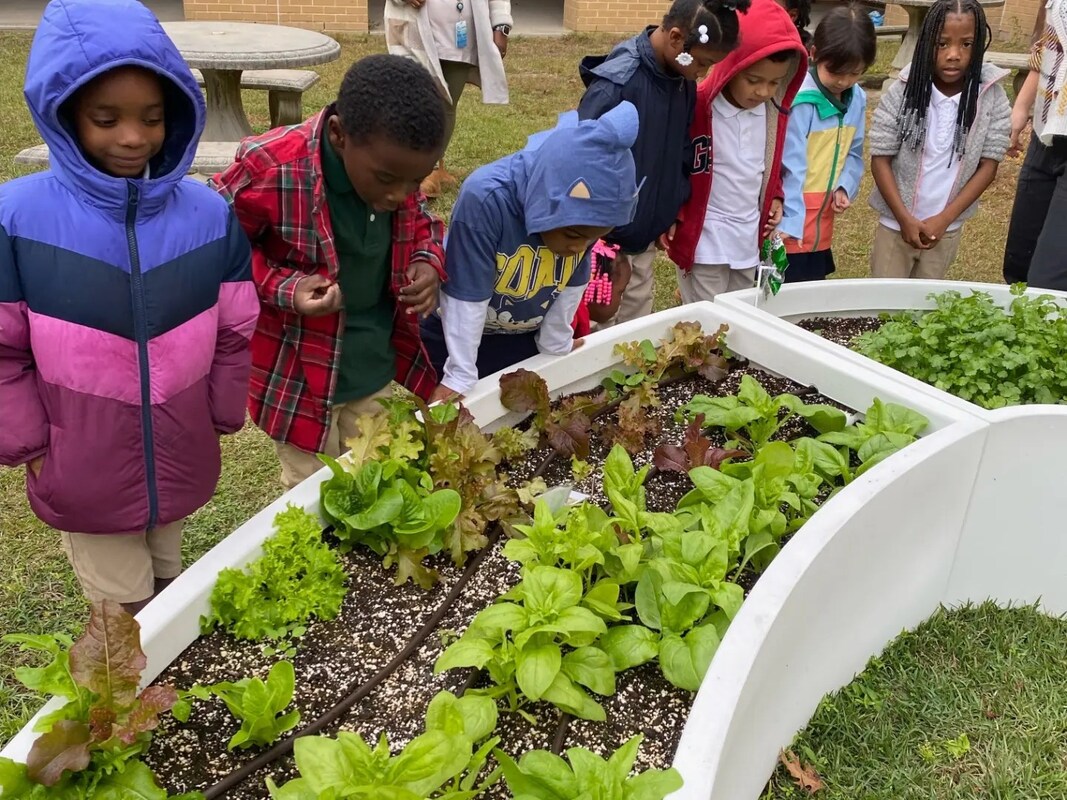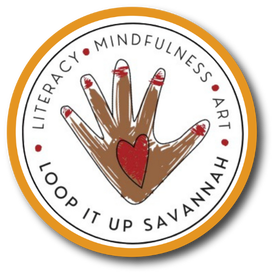Deep Dive into the STEAM Dream!
Program helps expand students' experiential learning, problem solving skills
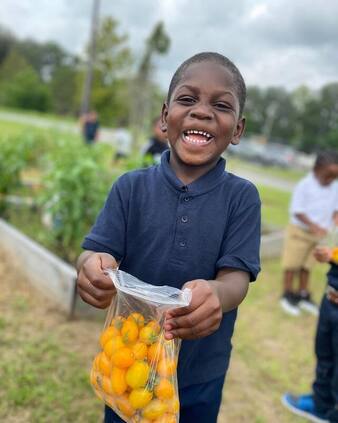
When students at Gadsden Elementary School adjourned for spring break in March of 2020, faculty and administrators did not spend their week-long vacation at the beach or in the mountains. Instead, they built a virtual school.
“We went home on spring break and the following Monday, we were online,” says Dr. Renee Bryant-Evans, who was serving as principal of Gadsden at the time. “Our children didn’t miss a beat.”
Nationally, other schools were not as prepared.
According to the RAND Corporation, an American nonprofit global policy think tank, fewer than half of American schools had trained teachers to deliver online instruction prior to the pandemic. Only one in five said they had made plans to deliver instruction during a prolonged school closure. Large schools were more likely than small schools to have taken some preparedness steps pre-pandemic, and middle and high schools were better prepared than elementary schools.
“We went home on spring break and the following Monday, we were online,” says Dr. Renee Bryant-Evans, who was serving as principal of Gadsden at the time. “Our children didn’t miss a beat.”
Nationally, other schools were not as prepared.
According to the RAND Corporation, an American nonprofit global policy think tank, fewer than half of American schools had trained teachers to deliver online instruction prior to the pandemic. Only one in five said they had made plans to deliver instruction during a prolonged school closure. Large schools were more likely than small schools to have taken some preparedness steps pre-pandemic, and middle and high schools were better prepared than elementary schools.
|
Bryant-Evans knew she had to keep students engaged, and she looked to Science, Technology, Engineering, the Arts, and Mathematics – better known as STEAM – to do the job. She had already shepherded the school to a USDA Green Ribbon Award in 2019 for “teaching conscientious environmental preservation with energy-saving strategies,” and was in the process of pursuing STEAM certification for Gadsden when the pandemic hit. She understood its power to help Gadsden’s 540 students engage in experiential learning, persist in problem-solving, embrace collaboration, and work through the creative process.
“Loop It Up Savannah came in to collaborate with us, and they started by creating take-home STEAM kits for the children,” recalls Bryant-Evans, who ended up being a co-founder of Loop It Up’s STEAM education program. “We had STEAM days where the students could log on with their parents and work on experiments and STEAM nights so students could be exposed to different STEM-based careers in the community. Children will be what they see.” |
Dr. Renee Bryant-Evans
Former principal of Gadsden Elementary School |
Thus the STEAM Dream was born. Now in 30 local public schools, this partnership with Loop It Up Savannah uses arts-integrated, project-based curricula to give students opportunities to apply higher-level academic skills to real-world problems faced by their communities. Schools are able to tailor their programs to students’ needs so it is not a one-size-fits-all approach.
|
As a result, Gadsden expanded its programming from merely highlighting science and engineering concepts to full incorporation into the school curriculum. One way they did this was through a School and Community Gardening Program for pre-K through fifth-grade students. Using a STEAM curriculum created by Loop It Up and partner schools, the program explores gardens as outdoor classroom spaces.
“Gadsden (now) has a greenhouse on site, which was part of the school winning the USDA Green Ribbon Award. They also had solar panels installed and taught the kids about ways to grow food and produce electricity in non-traditional ways,” says Bryant-Evans, who also notes that Gadsden is in a food desert. “Inquiry-based learning and using the engineering design process is now the way Gadsden does business. These are not just fun days or activities; we fold STEAM into the standards.” |
|
Likewise, Kimberly Dozier, Principal of Garden City Elementary, looked to STEAM to motivate students. Of her 586 students, 80 percent are Hispanic and 74 percent of those students are served by the ESOL (English for Speakers of Other Languages) Program. As students were easing back into in-person learning, she had an idea to repurpose the school’s underutilized and outdated Spanish lab.
|
Kimberly Dozier
Principal of Garden City Elementary School |
“As a new principal, I wanted to make sure I brought my academic approach to the school and didn’t merely operate off an old system,” she says. “We didn’t need that language lab, but we did need something that would be engaging and help with learning. We settled on STEAM.”
Initially, Loop It Up helped Garden City with procuring supplies and volunteers for STEAM challenges and also offered professional development to school staff. Last academic year, STEAM became more solidified at the school. “We had school-wide STEAM days with one theme and different activities based on age, and Loop It Up gave us recommendations to make it stronger,” Dozier recalls. “Then we began pushing these principles into the regular classroom environment. Our school garden is an extension of that.” |
|
Latasha Quarterman
Principal of Gadsden Elementary School |
Latasha Quarterman, the current Principal of Gadsden Elementary, says she’s grateful her school is providing students the chance to have experience in the garden.
“School gardening assists students with science and math standards, as well as promoting social emotional well-being. Our outdoor learning space promotes community and collaboration as students work towards a shared goal,” Quarterman says. “ In addition, we share the harvest with our staff and families, which encourages healthy eating and reduces food scarcity.” Sam Koentopp, Director of Educational Programs for Big Green, agrees wholeheartedly. “At Big Green, we know that growing food changes lives,” he says. “So many connections and outcomes come from a garden; students’ preferences and interest in eating fruits and vegetables shift |
when they are growing them themselves. Gardens provide diverse learning environments and help students have a better understanding about who they are and how they fit into the natural world. For young people, that can have lifelong impacts.”
|
Koentopp also knows that schools and communities are able to sustain their gardens when they are motivated through autonomy.
“Big Green, much like Loop It Up, is really offering a pillar of support. We’re not there to tell them how to do it or to do it for them,” he notes. “They need to be the ones to build the infrastructure and practices in a way that makes sense to them.” At Andrea B. Williams Elementary, they’re doing just that. First-graders are responsible for planting everything from carrots to kohlrabi and beets to bok choy, second-graders are working with pollination and bird houses, third-graders are using the produce to bake and try new vegetables, fourth-graders are learning about aquaponics, and fifth-graders are growing loofahs and learning about physical and chemical changes by making soap. |
“It’s kind of like sneaking beets into brownies,” smiles STEAM Thematics Specialist Susan Daly. “When kids learn things without realizing they’re learning, it’s more effective than a worksheet.”
But students aren’t the only ones learning.
“The garden is also a great way to get to know students, talk to them, and hear their stories. It lets teachers know where they’re coming from,” she says.
In the coming years, Loop It Up plans to continue collaborating with district-level SCCPSS departments, individual schools, Big Green, and community partners. The goal is to support sustainable and uniquely integrated school gardens into daily life through Loop It Up staff-led classes, customized workshops with partners, and garden-based family engagement events. Ultimately, going green will no longer be a catch phrase but a way of everyday life and learning.
Written by Nancy Fulbright of Chickadee Communications for Loop It Up Savannah.
To support Mindfulness Zone and Loop It Up's other core programs, click the link below.
But students aren’t the only ones learning.
“The garden is also a great way to get to know students, talk to them, and hear their stories. It lets teachers know where they’re coming from,” she says.
In the coming years, Loop It Up plans to continue collaborating with district-level SCCPSS departments, individual schools, Big Green, and community partners. The goal is to support sustainable and uniquely integrated school gardens into daily life through Loop It Up staff-led classes, customized workshops with partners, and garden-based family engagement events. Ultimately, going green will no longer be a catch phrase but a way of everyday life and learning.
Written by Nancy Fulbright of Chickadee Communications for Loop It Up Savannah.
To support Mindfulness Zone and Loop It Up's other core programs, click the link below.
